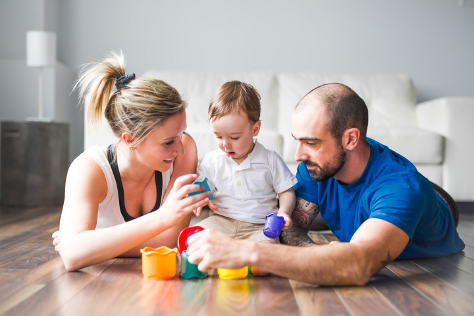Relationship broken down? How to co-parent now you’re not together
Relationships do break down, this doesn’t mean you can’t become an effective parenting team, here’s how

You may no longer be partners but both of you will always be parents and learning how to manage the tricky job of co-parenting will benefit all of you – you, your child and your child’s other parent.
You may still feel angry, hurt or rejected because of what led to your break-up but the person who will suffer most if the two of you continue at odds is your child. So how can you co-parent when you no longer live together or love each other?
You may need to:
Get over yourself
If you’ve split up, you may have plenty of reasons why you’d prefer to make a clean break. For instance, you may feel every time you’re in contact there will be conflict. Or one of you may wish to punish the other for whatever ended the relationship, or simply be convinced that a bad partner would make a worse parent. These and other reasons may be understandable, but they simply don’t add up against one overriding necessity; that a child needs and will love both parents, whatever.
Always remember you’re still both parents
In the upset after a break up either, or both of you, may not only retreat into blaming the other for being a bad partner, but then conclude they must be a bad parent. The thing is, kids don’t care about dad or mum’s qualifications in parenting – all they know is you’re mum or dad. If you think your ex is doing a bad job the best thing you can do is support and help them do better, not attack them.
Finish the argument
Yes, you both may feel upset but fostering those feelings adds pressure and stress on you and your child as well as the other adult. Get help – from www.relate.org.uk for instance – to have it out for once and all. With a professional guiding you, you can both voice your thoughts and take on board the other person’s but in a protected situation, so it doesn’t get out of hand, and can be laid to rest.
Agree to work together
Once you can set your feelings of disappointment and anger to one side, discuss and plan ways of giving your child the benefit of two loving parents even when you are apart. A counsellor or mediator from National Family Mediation (www.nfm.org.uk ) can help you put together a parenting plan that works for both you and supports your child, talking through contact, money and other parenting issues.
Who knows your child best?
Grandparents are vital, friends and other relatives important but the one person who can best sympathise and help with any parenting problem, and celebrate parenting victories, is the other parent. They do say ‘keep your friends close but your enemies closer’. Maybe add ‘your ex closer still’!
Never ever take it out on your child or criticise your ex
Playing around with contact arrangements or refusing to pass on presents may feel like getting back at your ex, but the person who gets hurt most is your child. And hearing a parent run down will be taken personally by a child – that’s my mum or dad, they will think, so what do you really feel about me?

Bounty “Sex & Relationship” articles are written by expert Suzie Hayman. Suzie is agony aunt for Woman magazine, a Relate trained counsellor, and an accredited TripleP (Positive Parenting Programme) parenting educator. She makes frequent appearances on TV and radio and as well as writing 31 books, Suzie writes features on parenting, relationships, sex and couples counselling, for a wide range of national magazines and newspapers